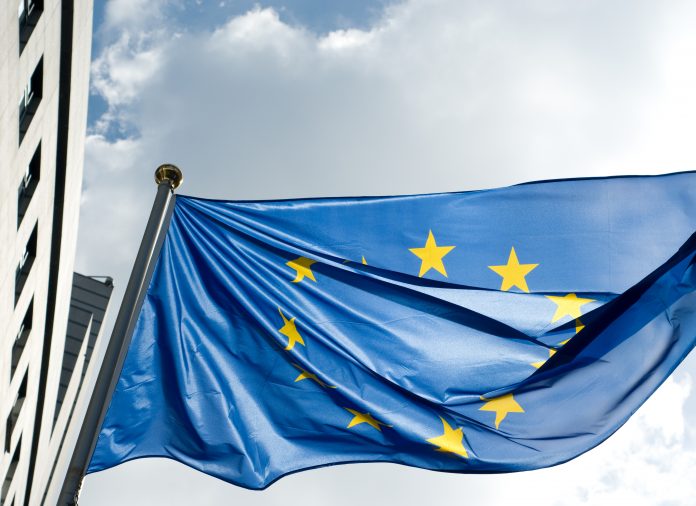The role of research and innovation in Europe, including the challenge COVID-19 brings to the sector, the principles of Open Access, increased cross-border collaboration plus gender and diversity, are discussed here
Science Europe represents the interests of significant public research performing and research funding organisations. Supporting those who perform or fund scientific research in Europe is a key aim of the organisation that was set up in 2011 and strive to use their expertise to shape and advocate science policy and funding. (1) One thing that the organisation sets out to achieve is ensuring the best possible conditions for both research and researchers. (2)
By way of further background, the current President of Science Europe is Secretary General of the National Research Fund of Luxembourg (FNR), Marc Schiltz. (3) In terms of other key figures in the organisation, we should also mention Lidia Borrell-Damián who was appointed Secretary-General in June 2019. (4)
Lidia contributed articles to Open Access Government when she was the Director of Research and Innovation at the European University Association. In one of these articles, she argues the European Commission’s Horizon Europe initiative holds great promise for the (5) future of research and innovation (R&I) in Europe. In another, she shares her thoughts on what lies ahead after Horizon 2020, in which she envisions a new kind of impact by linking research, innovation and education. (6)
Research & innovation during COVID-19 Jumping to the present, there is no doubt that the COVID-19 pandemic we have experienced this year is a tremendous challenge for both Europe and the world and will not go away soon. As such, Science Europe is an example of an organisation taking part in various activities to address “address the cause and consequences of the pandemic”. (7)
In this vein, Mariya Gabriel, European Commissioner for Innovation, Research, Culture, Education and Youth recently said why R&I are crucial during COVID-19 and for economic recovery, following a May 2020 European Commission report on the EU’s Science, Research and Innovation Performance. One area it draws our attention to is the requirement for R&I to support sustainable and inclusive growth of companies, regions and countries, to ensure that no one is left behind in the mission to bolster innovation systems, particularly in less-developed regions.
“Research and innovation is at the core of the response to the unprecedented crisis we are facing and can significantly contribute to the economic recovery. The 2020 Science, Research and Innovation Performance report shows how research and innovation are central to bring about the ecological and digital transitions Europe needs. Horizon 2020 and the future Horizon Europe programme play a crucial role in this transformation,” Commissioner Gabriel says. (8)
The future of research & innovation in Europe
Let’s start to wrap this article up by offering some additional thoughts about some of the key R&I issues in Europe, namely the principle of Open Access and cross-border collaboration, as well as gender and diversity towards better research.
We know that Open Access is strongly supported by Science Europe. This concerns the practice and principle of providing “free online access to scholarly publications” and as such, Science Europe wants to foster “a smooth transition from subscription to Open Access”.
Increased cross-border collaboration is another area that Science Europe strongly advocates because in their view, it “allows research communities to work together and strengthens less research-intensive regions.” This is an excellent example of how Science Europe aims to support those who perform or fund scientific research in Europe, which is also evidenced in their support for gender and diversity.
Gender and diversity pave the way towards better research and can be a significant resource for excellence in science, Science Europe says. Scrutinising research activities against any form of bias helps to ensure that research processes are fair, in the view of Science Europe. You can visit this link to find out more about what Science Europe is doing in this vein.
I’ll leave you with Science Europe’s thoughts on why gender and diversity are so important as a contribution to progress in wider society. In their view, all researchers must be able to “realise their full potential” and be “rewarded for the quality of their scholarly contributions” regardless of factors like gender, social background, age, religion, disabilities or ethnic origin. “Research organisations have a crucial role to play in addressing gender inequality, not only for the benefit of the science ecosystem but to contribute to progress in wider society.” (7)
References
1) https://www.scienceeurope.org/about-us/
2) https://www.scienceeurope.org/about-us/members/
3) https://www.scienceeurope.org/about-us/governing-board/
4) https://www.scienceeurope.org/news/science-europe-appoints-lidia- borrell-damian-as-secretary-general/
5) https://www.openaccessgovernment.org/research-innovation-in-europe/52227/
6) https://www.openaccessgovernment.org/after-horizon-2020-linking-research-innovation-and-education/44305/
7) https://www.scienceeurope.org/our-priorities/
8) https://ec.europa.eu/commission/presscorner/detail/en/IP_20_933











